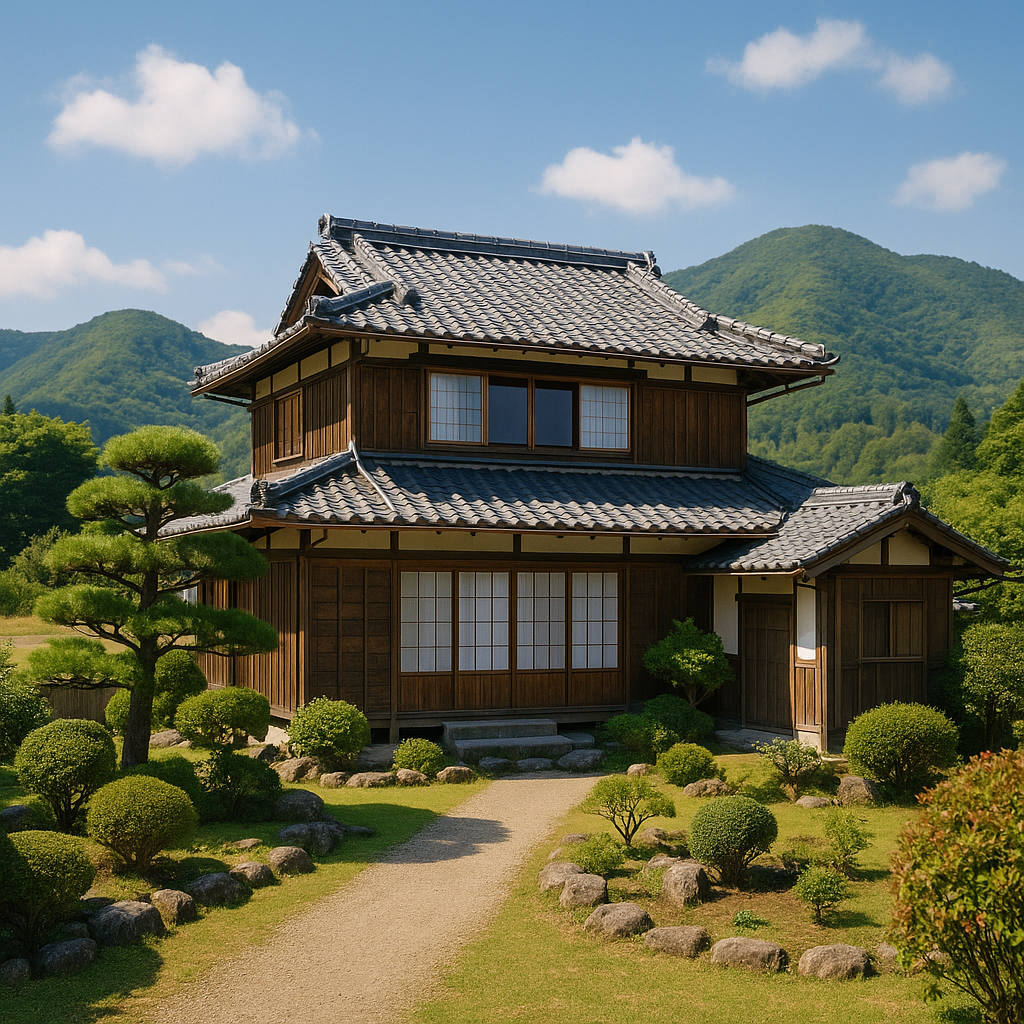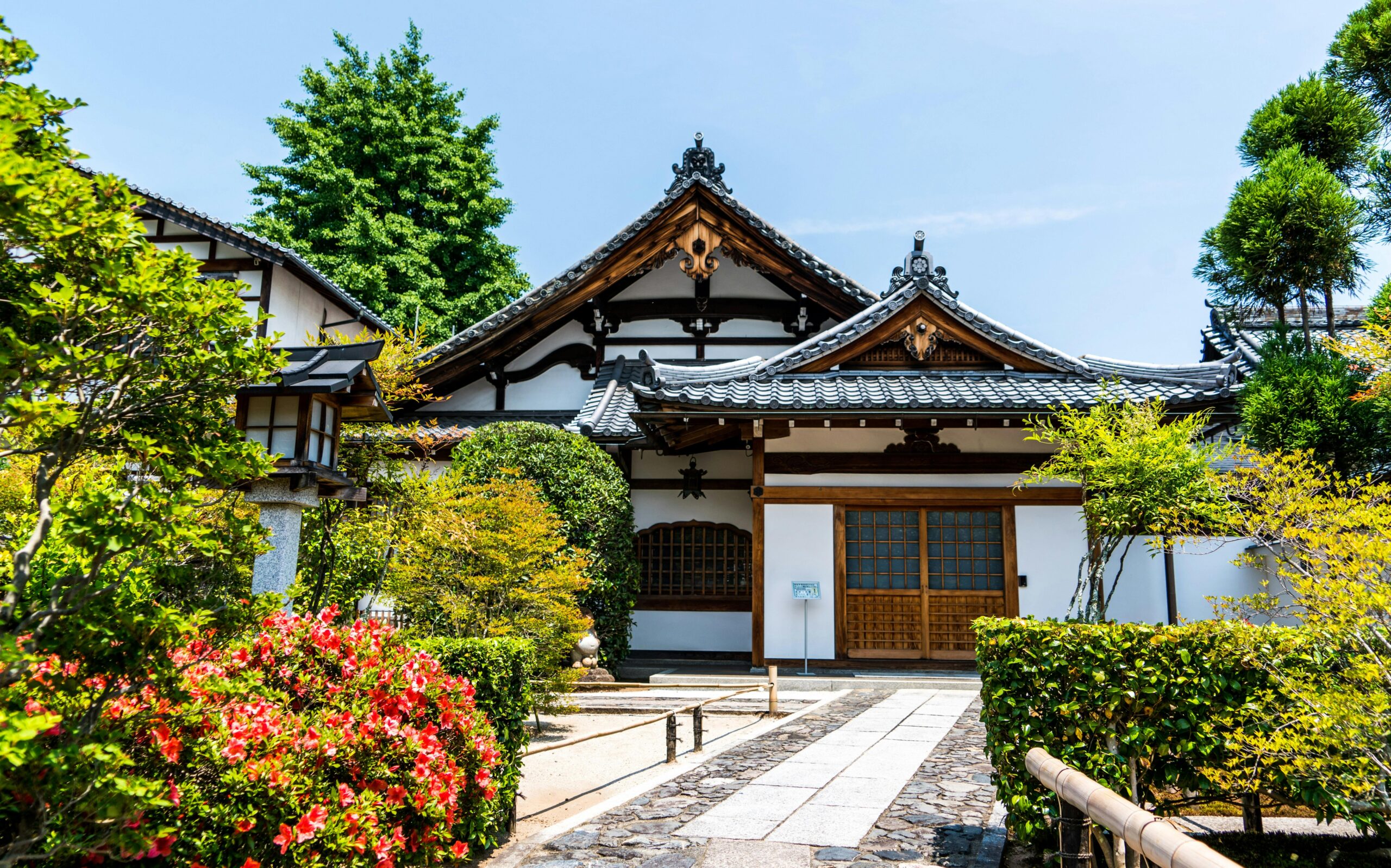A Japanese Perspective for Newcomers
When foreigners in their 40s, 50s, and 60s plan to start a new life here, one of the first questions they ask me is: What’s better — renting vs buying property in Japan?
This choice is about more than numbers. It affects your lifestyle, your ability to integrate into the community, and your sense of security as you age.

As someone Japanese who has lived here all my life, I’ve seen countless foreigners—my employees, friends, and students’ parents—go through this decision. I’ve also grown up surrounded by Japan’s unique culture of land ownership, rental rules, and traditions. My aim here is to give you both: authentic Japanese wisdom and real expat experiences so you can decide with confidence.
Renting in Japan: Why Renting vs Buying Property in Japan Feels Different
Why Many Foreigners Start with Renting in Japan
Most expats begin by renting. It feels safer and requires less long-term commitment. Renting lets you try different areas—whether that’s Tokyo’s bustling city life or the quiet charm of rural Niigata.
One of my employees, Chris from Canada (in his 40s), rented near Niigata station when he arrived. He told me, “I wasn’t sure if I’d stay five years or twenty. Renting gave me freedom without the big paperwork headache.”
The Real Costs of Renting Property in Japan
Renting in Japan involves several upfront payments that often surprise newcomers:
- Key money (礼金, reikin): A “thank you” to the landlord, non-refundable (1–2 months’ rent).
- Deposit (敷金, shikikin): Refundable, but cleaning costs are deducted.
- Guarantor (保証人, hoshounin): Usually required—either a Japanese guarantor or a guarantor company. (See my guide: Japan Permanent Residency Guarantor.)
- Agency fees: Typically another month’s rent.
So, moving into a ¥70,000/month apartment can cost nearly ¥300,000 ($2,000 USD) upfront.
Budgeting & Financial Planning for Renting vs Buying in Japan
Whether you rent or buy in Japan, budgeting is crucial. Renters must plan for deposits, key money, and renewal fees, while homeowners face mortgage payments, property taxes, and maintenance costs. These expenses can vary widely depending on location — for example, a central Tokyo condo is vastly different from a countryside house in Niigata.
It’s also important to think about ongoing living costs like utilities, insurance, and community fees. Housing costs are just one piece of the puzzle — you’ll also need to plan for insurance and healthcare. Many expats are surprised by the differences in Japan’s medical system, so I recommend reading my guide on Healthcare in Japan for Foreigners to see how it fits into your monthly budget.
For midlife expats, clarity in budgeting can reduce a lot of future anxiety. One of my American employees in his 50s once told me, “I wish I had mapped out all my costs earlier — the uncertainty made me anxious.” When you outline expected rent or mortgage, plus healthcare, utilities, and daily living, the future becomes less intimidating and far more manageable.
Renting Challenges for Older Expats — and How to Overcome Them
One of my American employees in his 50s told me: “I applied to two apartments, and both landlords turned me down because of my age.” This made me realize how important it is to prepare for these hurdles. In fact, I wrote a detailed guide on Japan Permanent Residency Guarantors that explains how to navigate guarantor requirements and what alternatives foreigners can use.
It’s true that both foreigners and Japanese seniors sometimes face age-related hurdles when renting. Landlords worry about income stability, or in some cases about health risks such as living alone. But this doesn’t mean renting is impossible — there are clear ways to reduce the risk of rejection:
- Use a Guarantor Company (保証会社)
Instead of relying on friends or family, you can use a guarantor company. They act as your co-signer, and for a small fee (typically 30–100% of one month’s rent + renewal fee), they give landlords confidence to accept you. - Local Government Support Programs
Many municipalities offer housing security programs for seniors and foreigners, sometimes in partnership with credit guarantee associations. These services reassure landlords and open more rental options. - Show Strong Financials
A safe benchmark is to keep rent under 30% of your monthly income or pension. Having a clear budget and showing proof of stable income or savings reduces anxiety for both you and the landlord. - Explore Alternative Housing
Agencies like UR Housing (Urban Renaissance Agency) don’t require guarantors or key money, and they’re more flexible with age and nationality. Serviced apartments and sharehouses also provide security without strict landlord rules.
💡 By preparing in advance — securing a guarantor company, budgeting realistically, and exploring government or UR housing — you can eliminate much of the anxiety. The future feels clearer when you know the system is on your side.
Buying in Japan: Affordable, Yet Complex
Why Buying Appeals to Expats

Here’s something many foreigners don’t expect: Japanese property, especially outside Tokyo, is often affordable compared to the U.S. or Europe.
Entire countryside homes in Niigata can sell for under ¥10 million ($70,000 USD). Condominiums in cities vary but can still be within reach for midlife professionals.
As one Japanese friend of mine says: “In Tokyo, you rent your lifestyle. In the countryside, you buy your freedom.”
The Costs of Buying
- Property price: ¥30 million+ in Tokyo, far less in rural areas.
- Taxes & closing fees: Around 6–8% of purchase price.
- Maintenance: Older homes can be costly to repair.
- Insurance: Earthquake coverage is essential.
Foreigners can legally buy property in Japan, but mortgages are hard to secure without permanent residency or a long work history. Many expats buy in cash.
Risks of Buying
- Property values often depreciate, especially in rural Japan.
- Selling can take years—many “akiya” (vacant houses) sit empty.
- Older wooden houses built before modern seismic codes may need inspection or reinforcement.
One British employee told me: “I loved the idea of owning, but I was afraid of being stuck with a house I couldn’t sell.”
Renting vs Buying Property in Japan: A Side-by-Side Comparison
When deciding on renting vs buying property in Japan, it helps to compare costs, flexibility, and long-term stability side by side.
| Factor | Renting | Buying |
|---|---|---|
| Upfront Cost | 3–4 months’ rent | 6–8% fees + purchase price |
| Flexibility | Easy to move | Harder to sell/move |
| Stability | Lease renewals every 2 years | Permanent ownership |
| Barriers | Guarantor, age bias, nationality bias | Mortgage approval, upkeep |
| Investment | No equity | Possible asset (though values drop) |
The Cultural Reality of Renting vs Buying Property in Japan
This is where local knowledge matters:
- Land > House: In Japan, land holds value, but houses depreciate. Families often rebuild every 30–40 years.
- Vacant house opportunities: Many akiya are inherited and unwanted. Some are being renovated into traditional inns, cafés, or guesthouses. On Sado Island, I recently heard about a couple in their 60s who bought a vacant home while traveling and turned it into a traditional Japanese inn.
- Community belonging: Owning—especially in rural areas—can help you integrate. Neighbors see you as rooted, not temporary.
Another reason many people struggle with renting vs buying property in Japan is the cultural difference in how land and homes are valued.
In your 40s, 50s, or 60s, the decision between renting vs buying property in Japan looks very different.
- In your 40s: Renting gives freedom. Buy only if you know you’ll stay 10+ years.
- In your 50s: Many expats buy, seeking stability before retirement.
- In your 60s: Renting may become harder. Buying a modest home can bring peace of mind.
Real Stories: My Employees’ Voices
- Chris (40s, Canada): “Renting was perfect at first. But after 10 years, buying actually looks cheaper long term.”
- Mark (50s, U.S.): “Being rejected as a renter at 55 was a wake-up call. Owning suddenly felt like the safer choice.”
- My Japanese colleague: “Foreigners don’t realize—some countryside homes are nearly free if you renovate. That’s another side of Japan you don’t see in the cities.”
Practical Tips for Midlife Expats
- Rent first, buy later. Learn the system before committing.
- Explore akiya banks. Try the National Akiya Bank portal or browse Sumai Akiya for thousands of listings.
- Budget wisely. Don’t forget taxes, renovations, and insurance.
- Consider a hybrid model. Rent in the city, buy a cheap rural home for weekends.
- Think about aging. Choose an option that makes you feel secure long term.
- Look into UR Housing. The Urban Renaissance Agency offers apartments without key money or guarantors, making it easier for seniors and foreigners to rent with confidence.
💡 Pro Tip for Newcomers
Relocating to Japan can feel overwhelming—housing, paperwork, and even job hunting all at once. One way to make the transition easier is by comparing moving services before you even leave your home country.
👉 Get free moving quotes with MoveAdvisor — it works internationally, so you can check costs, plan your budget, and avoid surprises before you set foot in Japan.
Recommended Resource
Whether you rent or buy, you’ll need to move money to Japan for deposits, renovations, or everyday living. I recommend Wise — it’s the easiest way to send money internationally with low fees and fair exchange rates. Many of my readers use it to transfer funds for housing in Japan, saving thousands compared to banks.
Further Reading
You may also find these helpful:
- Japan Permanent Residency Guarantor Guide
- Healthcare in Japan for Foreigners
- I’ll be covering Emergency Medical Costs in Japan for Expats in detail soon — check back for a full guide.
Closing
In the end, whether you rent or buy in Japan depends on your stage of life, your finances, and how deeply you want to plant roots. Renting offers flexibility. Buying offers security. Both paths can lead to a fulfilling life here.
My father used to say, “A home is not just a roof—it’s the welcome you give and receive inside.” I hope this guide helps you feel that same welcome as you make your decision.
Whether you choose renting vs buying property in Japan, both paths can lead to a fulfilling life here.
Download the Free 7-Step Japan Move Checklist!
Enter your email below, and I’ll send it straight to your inbox.
Thank you!
You have successfully joined our subscriber list.
If you’d like more support, don’t forget to download my 7-Step Japan Move Checklist . And of course, you’re warmly invited to follow my journey here on Aya’s Move Japan Guide.


4 thoughts on “Renting vs Buying Property in Japan: A Guide for Expats”
This is great information! I want to know more!
Hi Alane,
I’m so glad to hear that — thank you! 😊
If there’s something specific you’d like to know more about (like visas, finding a place to live, or daily life here), just let me know. I might even write a post about it so others can learn too!
Looking forward to hearing your questions,
Ayako
Hi Ayako San,
Loved this article. I am planning to move to Japan in the next couple of years with my wife. It would be good to get in touch with you to learn more about relocating to Japan. Thanks
Hi Afaq,
Thanks so much for your message — I’m so glad you enjoyed the article! And wow, how exciting that you and your wife are planning a move to Japan.
If you have any questions about relocating — whether it’s visas, housing, culture, or everyday life — just let me know. I’m happy to help, and I’d love to write about your questions on the blog for the benefit of others making a similar move.
Warmly,
Ayako
Comments are closed.